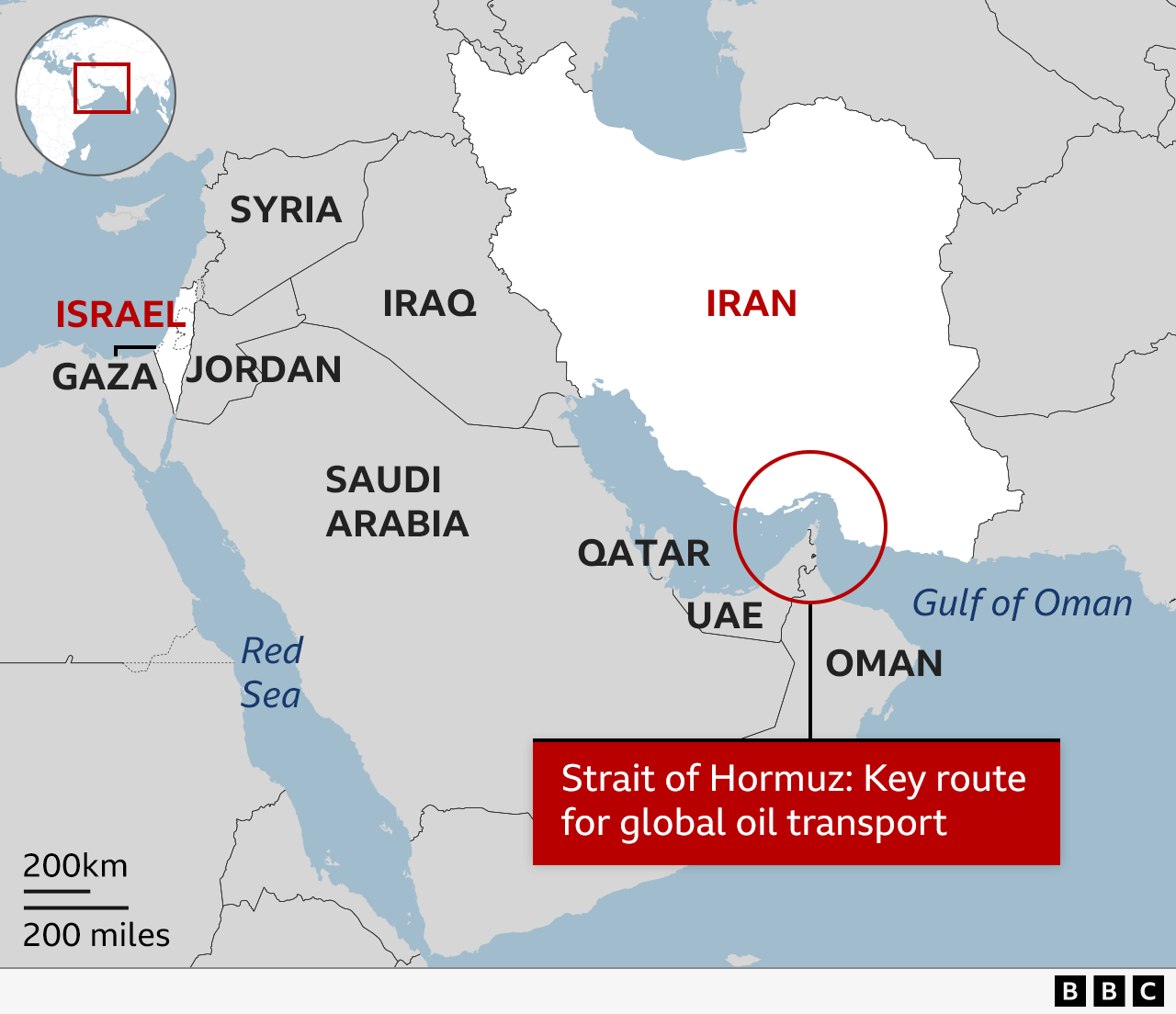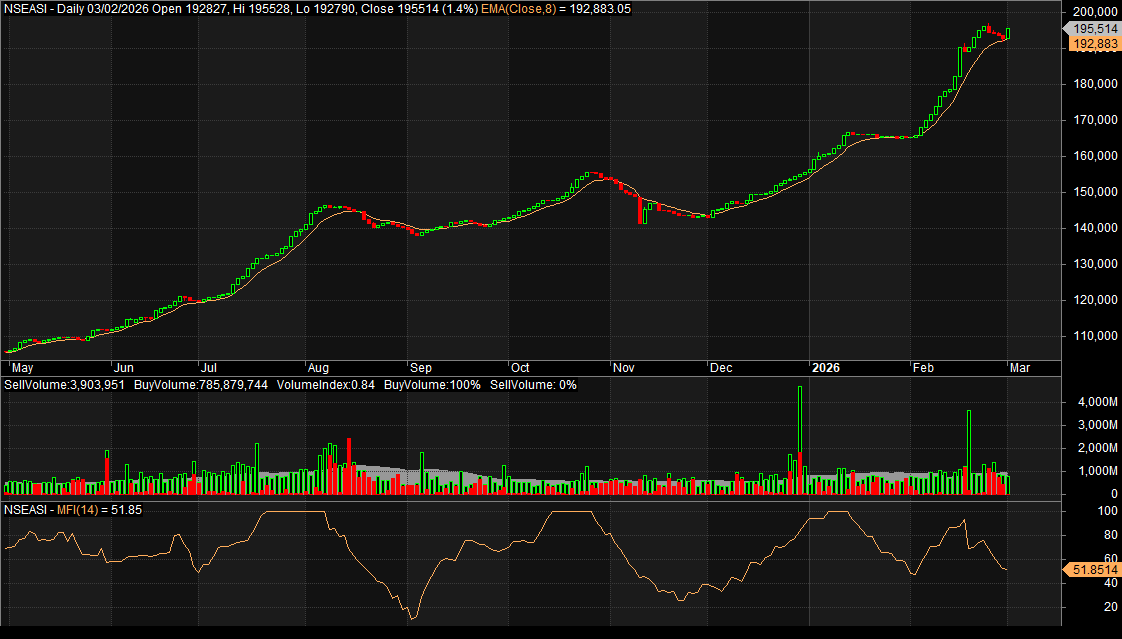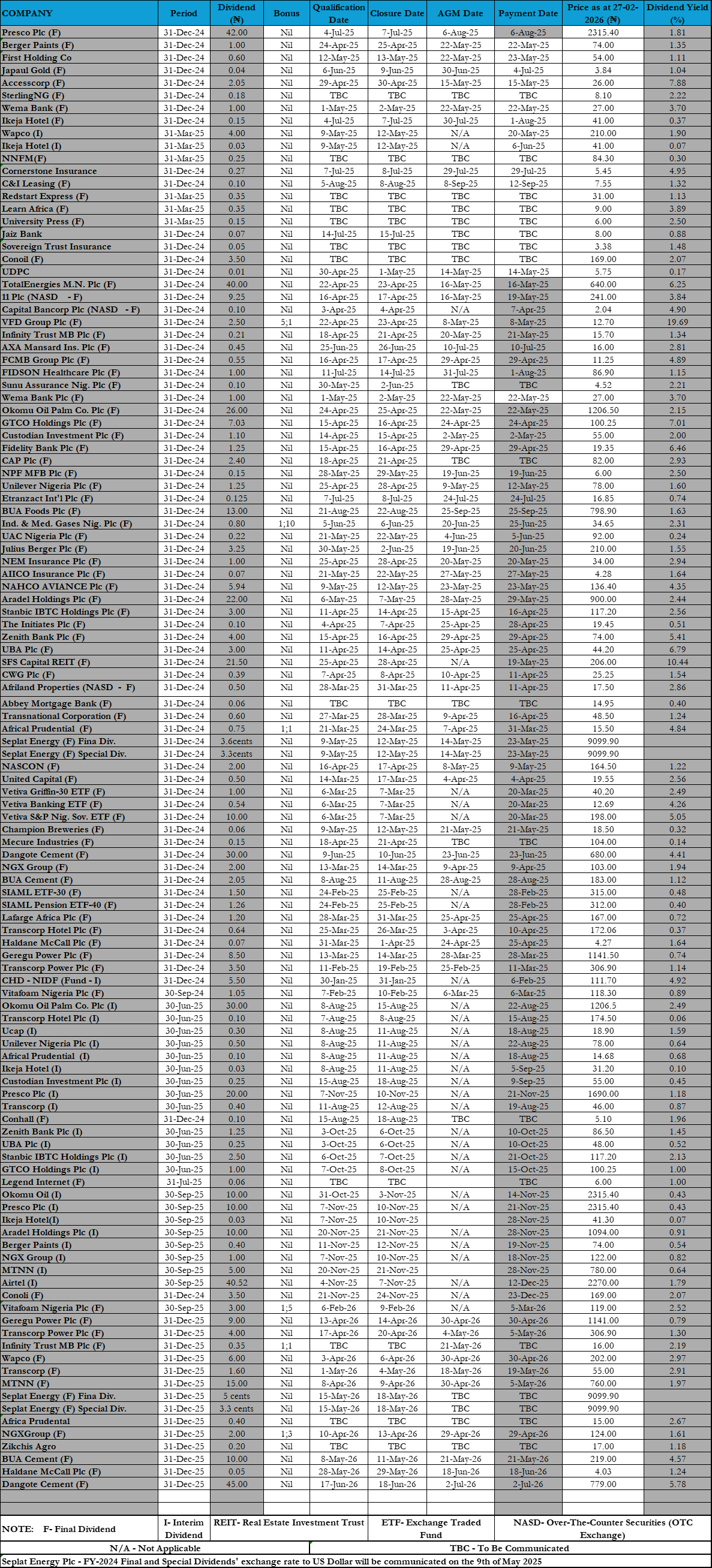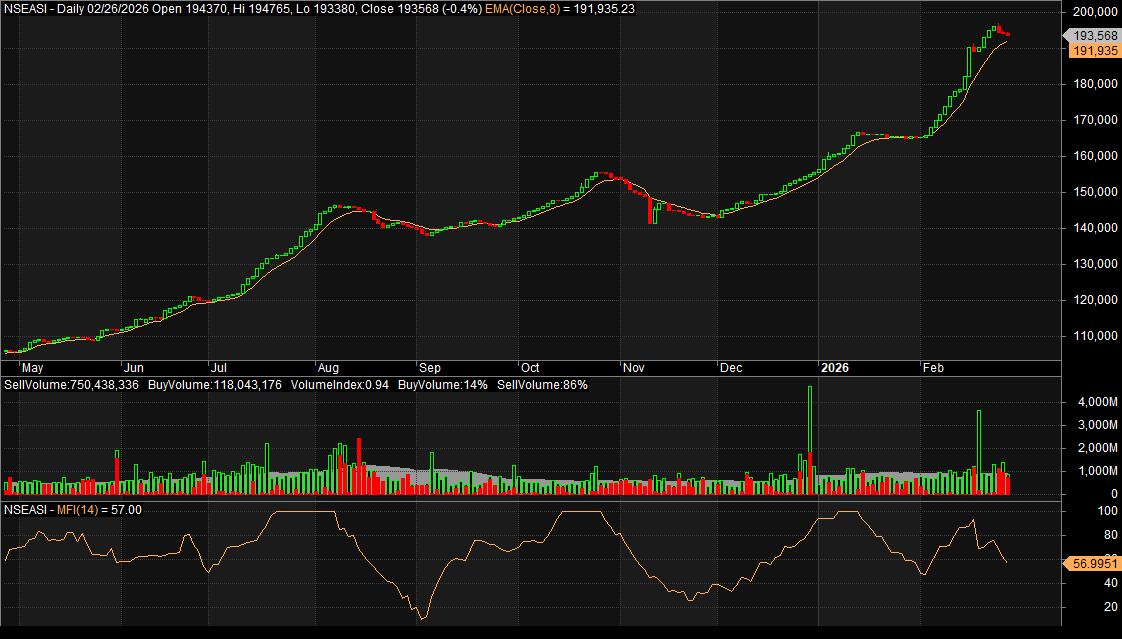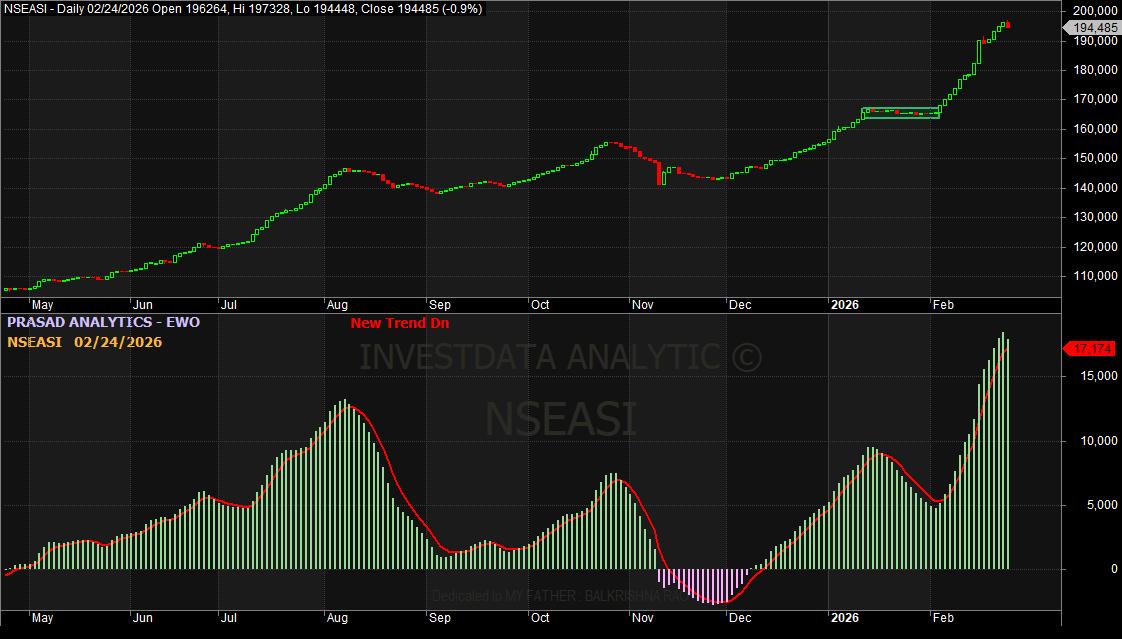
Market Update For November 17, 2025
The Nigerian equity market opened the new week on a downbeat and decidedly cautious note, reflecting a renewed wave of profit-taking and risk-off positioning across several major sectors. Monday’s trading session marked a shift in tone after last week’s moderate recovery, as investors reassessed market risks, recalibrated short-term expectations, and responded to weakening momentum on the technical charts. While the preceding sessions had seen pockets of bargain hunting and selective accumulation, sentiment cooled sharply as traders opted to unwind positions in high-cap names that have struggled to sustain traction in the face of broader macro uncertainty.
The tone of Monday’s session underscores the fragile nature of current market confidence. Over recent weeks, the equities market has oscillated between brief bullish recoveries and sudden corrections, reflecting a tug-of-war between bargain hunters searching for value and short-term speculators keen to lock in quick gains. This volatility has persisted against a backdrop of mixed macroeconomic indicators, tightened liquidity conditions, and a global risk environment characterised by geopolitical tensions and commodity-price fluctuations. The interplay of these factors continues to influence how investors assess both the sustainability of rallies and the attractiveness of current price levels.
From a technical standpoint, the broader market picture reveals a structure that remains constrained beneath a major overhead resistance band. The 147,000 index zone, in particular, has acted as a persistent ceiling in recent weeks, resisting repeated attempts at a breakout. The market’s failure to sustain upward movement beyond this level triggered renewed selling pressure on Monday, signalling that buying momentum has weakened significantly. Price action has fallen back below short-term moving averages that previously served as support, indicating a shift in control toward sellers. Momentum indicators such as RSI, MFI, and MACD all reflect reduced positive sentiment, while lower daily volume suggests diminishing conviction among buyers.
Should the market fail to stabilise at the 145,000 – 144,000 support band, a major technical area that previously attracted significant buying interest, the index could be vulnerable to a deeper pullback toward the next key support around 143,500. A breakdown at that level would confirm the strengthening bearish undertone and potentially open the door for more aggressive profit-taking across major sectors. On the other hand, a strong rebound at or above these supports could restore some bullish momentum, especially among medium-term investors tracking value opportunities in banking, industrial goods, and energy-linked stocks.
Across the market sectors, performance was broadly negative, with industrial goods leading the downturn. The sharp decline in major cement stocks was a significant drag on the benchmark index, reflecting both technical rejection at higher price levels and a shift in investor strategy as traders sought to lock in gains accumulated during earlier sessions. The banking sector, which has recently been a focal point for speculative and medium-term interest, also recorded notable losses. Despite strong underlying fundamentals and attractive valuations in several tier-1 banks, the sector fell under profit-taking pressure as investors opted for caution amid tightening liquidity and uncertainties around regulatory developments.
Consumer goods stocks delivered a mixed performance, with several counters experiencing muted activity as investors stayed on the sidelines. Interest in the sector has been dampened by inflationary pressures, cost-driven margin concerns, and subdued consumer spending. The insurance sector likewise saw sporadic activity with bursts of interest in a few penny stocks but no sustained momentum capable of influencing broader market direction. Energy-linked stocks attempted a mild rebound, supported by developments in the global oil market, but the uptick remained insufficient to offset the weight of declines in other sectors.
Investor sentiment continues to be shaped by a cocktail of local and global forces. Domestically, concerns linger around inflation dynamics, FX liquidity, government fiscal direction, and monetary policy expectations. These considerations continue to influence how investors interpret valuations, forward earnings estimates, and sectoral prospects. Globally, attention remains fixed on shifting commodity prices, especially crude oil, as well as geopolitical developments that affect global supply chains and financial flows. The ongoing uncertainties have encouraged investors to adopt more defensive positioning, favouring short-term gains and nimble trading strategies over long-term risk exposure.
In the commodities market, oil prices traded in a narrower band on Monday as traders digested updates from Russia’s export infrastructure. Loadings resumed at the Novorossiysk terminal after a temporary suspension triggered by a Ukrainian drone attack, easing earlier supply concerns. Brent crude edged up to $64.46, while WTI traded at $60.12, with both posting marginal intraday gains. These slight increases came after a more pronounced rise of over 2% on Friday following the earlier disruption that impacted roughly 2% of global supply. While the stabilisation in crude prices may offer some support to energy-linked equities in Nigeria, the overall geopolitical backdrop remains volatile, suggesting that future price movements may continue to exert influence on market sentiment.
Bringing the session to a close, the Nigerian equities market finished firmly in the red as the All-Share Index (ASI) fell 1.26% to 145,159.77 points, erasing N1.17 trillion in market capitalisation to close at N92.33 trillion. The year-to-date return moderated to 41.03%, reflecting the market’s recent pattern of gradual retracement. The decline was driven by losses across several major counters including ENAMELWA (-10.00%), DANGCEM (-10.00%), TRANSCORP (-4.66%), ACCESSCORP (-3.26%), UACN (-3.17%), FIRSTHOLDCO (-2.76%), OANDO (-2.32%), ZENITHBANK (-1.64%), BERGER (-1.20%), UNILEVER (-0.68%), GTCO (-0.58%), ARADEL (-0.38%), and UBA (-0.25%). SOVRENINS led the gainers, while NCR achieved a new 52-week high at N28.15. Market activity slowed significantly, with 388.18 million units valued at N31.14 billion traded across 28,492 deals. TANTALIZER topped the activity chart by volume with over 57 billion units, while ARADEL dominated value, contributing 69.02% of the day’s total turnover.



